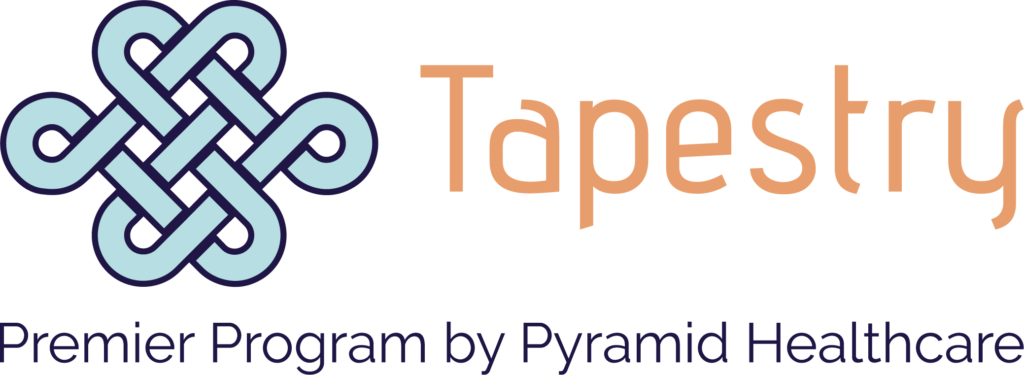Anorexia Nervosa Treatment in North Carolina
Asheville Anorexia Nervosa Treatment
There is a Way to Beat Your Eating Disorder
Anorexia nervosa is characterized by a distorted body image accompanied by an unwarranted fear of being or becoming overweight. Symptoms include repeatedly weighing yourself, trying to maintain a below-normal weight through starvation or too much exercise and eating only small quantities of only certain types of food. Anorexia nervosa has the highest mortality rate of all psychiatric disorders – we say this not to scare you, but to stress how important it is to seek help.
This is not something you can beat alone. At Tapestry, you will be supported by a compassionate and dedicated team of mental health professionals who specialize in eating disorder treatment. We empower our patients so that they can sustain healthy eating habits and behaviors long after their treatment with us has concluded. We at Tapestry can help navigate through your treatment options and deside what one is best for you.
Anorexia Nervosa Symptoms
- inability to maintain a normal weight
- fatigue
- insomnia
- skin that is yellow or blotchy
- constipation
- more than three cycles without a period
- dry skin
- low blood pressure
How is Anorexia Nervosa Diagnosed
Typically a doctor will do multiple tests and exams to determine the diagnosis. These exams and tests generally are:
- Physical Test: This will include checking your height and weight, vitals, checking your skin and nails, and listening to your heart and lungs
- Lab Test: This is conducted to check your blood count, and your electrolytes and protein. This will also check the functionality of your liver, kidney and thyroid.
- Psychological Evaluation: A mental health professional will ask about your thoughts feelings and eating habits.
Don’t try to tackle anorexia nervosa alone. The Tapestry team in Asheville and western North Carolina can help. Contact us today at (828) 490-4032 for a confidential consultation.
How Do I Know if I Have Anorexia Nervosa?
When does not eating become an eating disorder? The DSM-V has a specific set of criteria that help us identify anorexia nervosa:
- Fasting or general not eating has led to significantly low bodyweight for your age, sex, and physical health
- You have an intense fear of becoming fat, even if you are currently underweight
- You view your body differently compared to what other people tell you about it – i.e. you see yourself as large when other people comment on how skinny you are
Keep in mind that these guidelines cannot be used to make an official diagnosis. Even if you do not meet all the symptoms above, you could still have an eating disorder. Keep an eye out for symptoms like hiding your eating habits, anxiety when eating in public, cooking meals for others without eating yourself, or constantly ignoring or denying feelings of hunger. Try to assess yourself honestly and don’t be afraid to talk to a doctor. What you and your doctor discuss is confidential, and they cannot force you to do anything.
Help Is Just a Call Away
The truth is that an eating disorder is not easy to overcome, but that doesn’t make it impossible. Your best chance at addressing anorexia nervosa once and for all is to contact an eating disorder treatment center like Tapestry. Here, you will have access to clinical professionals, support groups, and other people who understand what you’re dealing with. It’s never too late to get help.
Call Tapestry today at (828) 490-4032 for a confidential consultation with a member of our team in Asheville.
PROFESSIONAL STAFF TO CARE FOR OUR CLIENTS
Tapestry staff members bring decades of combined experience providing empathetic, effective treatment for eating disorders and behavioral disorders.
AN EVOLVED APPROACH TO BEHAVIORAL HEALTHCARE
Through years of experience, we know that these conditions are rarely isolated. We understand that disordered eating and co-occurring disorders are often the result of underlying mental health issues such as trauma, depression and anxiety disorders.
FOUR BEAUTIFUL TREATMENT FACILITIES
Each aspect of our facilities is designed to put you at ease and make you feel as at home as possible.






